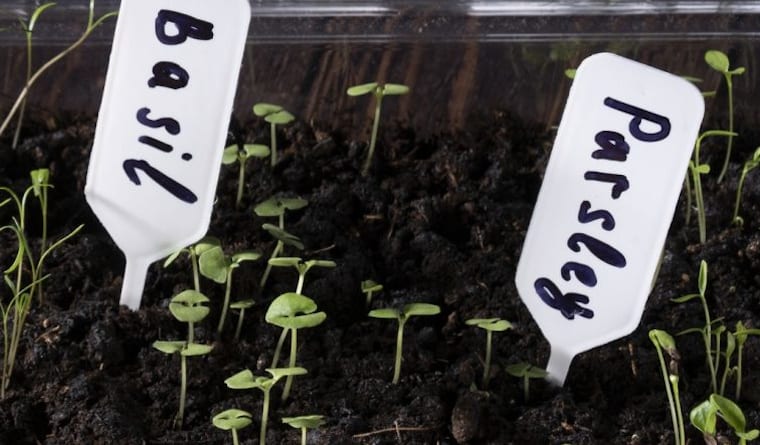For those of you who’ve begun germinating seeds with readied anticipation for sunshine and salads, topsoil depots are getting ready to open their doors as warmer days and nights are just around the corner.
With the resurgence of new findings on the many benefits fruits and vegetables provide, the delicacy of fresh fine herbs often takes second stage.
From my childhood years, I can recall a garden of composted kitchen scraps that yielded crops to homegrown produce that are still fragrant in my memories.
The minty aroma of perfect red tomatoes, the fresh scent of those field cucumbers freshly peeled and the parsley my parents added to everything — the one ingredient which made our foods complete.
Little did I know in my younger years how nutrient-dense these gifts from the earth were.
Watching my dad begin the process of germinating seeds in tiny little peat pots, transplanting them to our home garden, turning the soil and watering with care in dedicated hands, I can appreciate its value now more than ever.
Fresh herbs solely used as a garnish for eye candy appeal are passé today.
They don’t just impart a flavourful punch, but also provide a powerhouse of nutrients that benefit the body in a host of ways.
What you should know, is that fine herb growing can take off like a wildfire. So plan on containing your field of delicacies if you want some control over your garden, making its care easier and more enjoyable. Use quality ingredients to plant in and know that there are some specific herb varieties that are easy to care for and provide more than you know to all of your recipes from breakfast to dinner and even dessert.
Peppermint, known for its digestive qualities, has also been more frequently used for headache relief. Since peppermint oil contains menthol, it can naturally increase blood flow giving a sense of cooling which can be relieving for many sufferers. Between other uses like freshening breath and opening up sinuses, it’s a clear winner in my books for essentials in your herbs garden.
Rosemary has a distinct scent and flavour like no other. High in rosmarinic acid, this fresh herb is known for its anti-allergenic properties by suppressing both allergic responses and nasal congestion in some.
Parsley, with its fresh fragrant appeal, is high in vitamin K, wonderfully supportive for bone health and thickening of the blood, and can also be a powerful diuretic. Diuresis is the process in which your kidneys make extra liquid in order to get rid of a substance in your body. It works as a powerful natural diuretic and can help reduce blood pressure and bloating. It’s very supportive to eye health, supercharged with vitamin A, along with two additional antioxidants, lutein and zeaxanthin, which help prevent age-related macular degeneration.
Basil has a variety of species known to many for imparting varied flavour enhancements to specific dishes. These include: sweet basil, lemon basil, Italian or curly basil, holy basil, Thai basil and lettuce-leaf basil. The smell and flavour of basil vary depending on the concentration of essential volatile oils present in the herb.
Cinnamate, citronellol, geraniol, linalool, pinene and terpineol are some of the oils that one can find across all species of basil. It’s the presence of these oils which mainly affects its medicinal benefits of it. Anti-inflammatory properties due to its powerful oils as mentioned above contain enzyme inhibiting properties. Sometimes used to ease rheumatoid arthritic symptoms, bowel distress and various sinus congestion ailments, it’s a versatile herb that can be used in cold or hot applications.
Antioxidants are no stranger in the world of nutrition, as they help combat the negative effects of free radicals which cause oxidative stress to the body, damaging its cells. We know about the benefits of antioxidants more than ever and basil contains two water-soluble ones called orientin and vicenin. They are mainly responsible for strengthening our immune system, protecting the body’s cellular structure, protecting our DNA and delaying the aging effects of skin.
Basil is becoming more known as an adaptogen, believed to stimulate neurotransmitters that regulate the hormones responsible for inducing happiness and energy.
There’s a green thumb in all of us. Put yours to the test with all, or a combination of these, watching your meal blossom from ordinary to extraordinary.
Trust that nature always provides the essentials and beyond for your health and next time you’re out enjoying a delicious meal, don’t forget to eat your garnish.




